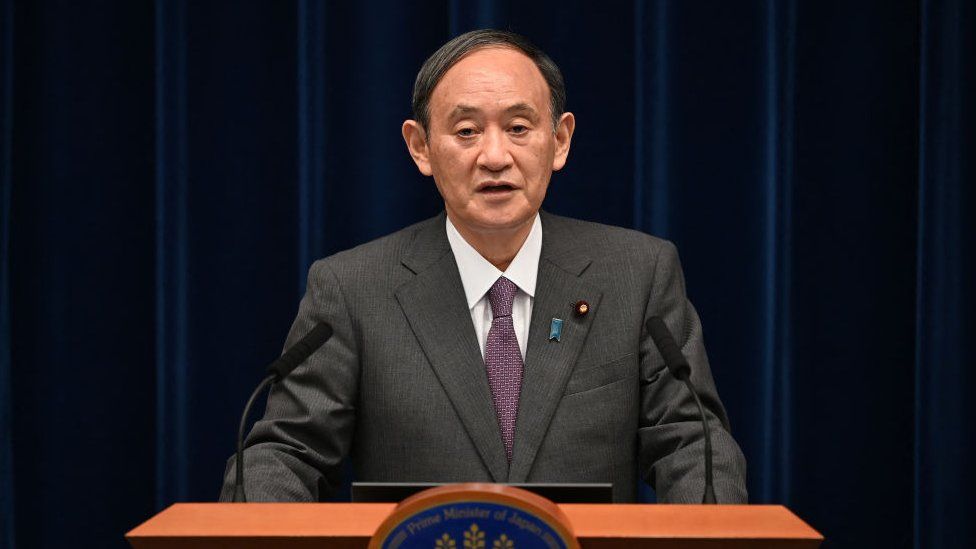Japanese Prime Minister Yoshihide Suga announced Friday he does not intend to run for reelection,
日本首相菅义伟周五宣布,他将不会竞选连任,
setting the stage for his replacement after just one year in office.
为继任者当选做好准备,而菅义伟政府仅仅上台了一年。
Hopes were initially high for Suga, who took over after Shinzo Abe resigned last September due to health problems.
在去年9月安倍晋三因健康问题卸任后,菅义伟接任了日本首相一职,最初人们对他寄予厚望。
Since then, Suga's handling of the global health crisis and a rocky vaccination rollout pulled his approval ratings down below 30%.
不过之后,由于菅义伟对全球卫生危机的应对,以及疫苗接种覆盖率的低下,使他的支持率降至不到30%。
Suga said Friday he hoped to focus on battling the pandemic instead.
菅义伟周五表示,他希望现阶段更专注于抗击疫情。

"While I had the schedule to run in the election, thinking about COVID measures and election activities needed an enormous amount of energy.
“虽然我有参加选举的打算,但同时应对新冠疫情和选举活动需要耗费大量的精力。
In that situation, I could not do both. I needed to choose one."
在此情况下,我无法两者兼顾。我需要从中做出选择。”
Suga's comments cap off a rollercoaster week in which he pulled out all the stops to save his job.
菅义伟的这一表态,使得他过山车般的一周得以结束。在这一周中,他在竭尽全力地保住自己的工作。
Ruling Liberal Democratic Party officials said Suga will finish his term as its president until his successor is chosen in a party-wide election slated for September 29.
日本执政党自民党的有关人士表示,菅义伟将在9月29日的全党选举中选出继任者,在此之前他还会继续担任自民党总裁。
The winner of the contest is all but assured of becoming premier because of the LDP's majority in the lower house.
由于自民党在众议院占多数席位,因此此次竞选的获胜者,几乎可以肯定将成为日本新任首相。
The government has been considering holding the general election on Oct. 17.
日本政府正在考虑10月17日举行大选。


